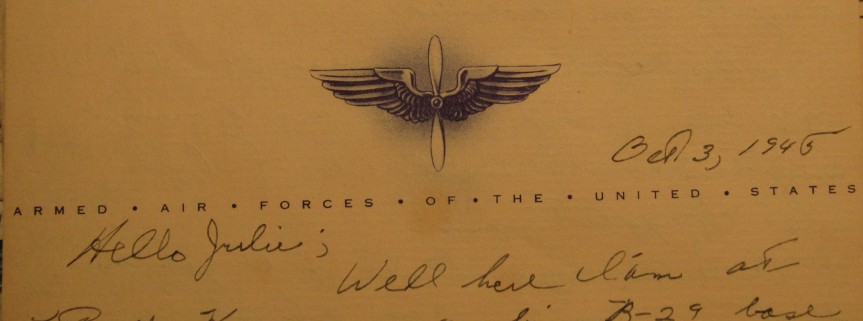Ending America’s Cult of the Warrior-Hero

W.J. Astore
Every now and again I look over my dad’s letters from World War II. He was attached to an armored headquarters company that didn’t go overseas, but he had friends who did serve in Europe during and after the Battle of the Bulge in late 1944. Also, he had two brothers, one who served in Europe attached to a quartermaster (logistics) company in the Army, the other who served in the Pacific as a Marine.
Reading my dad’s letters and those from his friends and brothers, you get a sense of the costs of war. They mention friends who’ve been killed or wounded in action; for example, a soldier who lost both his legs when his tank ran over a mine. (His fellow soldiers took up a collection for him.) They talk about strange things they’ve seen overseas, e.g. German buzz bombs or V-1 rockets, a crude version of today’s cruise missiles. They look forward to furloughs and trips to cities such as Paris. They talk about bad weather: cold, snow, mud. They talk about women (my dad’s brother, Gino, met a Belgian girl that he wanted to marry, but it was not to be). But perhaps most of all, they look forward to the war’s end and express a universal desire to ditch the military for civilian life.
All of my dad’s friends wanted to get out of the military and restart their civilian lives. They didn’t want a military career — not surprising for draftees who thought of themselves as citizen-soldiers (emphasis on the citizen). In their letters, they never refer to themselves as “warriors” or “warfighters” or “heroes,” as our society is wont to do today when talking about the troops. War sucked, and they wanted no part of it. One guy was happy, as he put it, that the Germans were getting the shit kicked out of them, and another guy was proud his armored unit had a “take no prisoners” approach to war, but this animus against the enemy was motivated by a desire to end the war as quickly as possible.
Reading these letters written by citizen-soldiers of the “greatest generation” reminds me of how much we’ve lost since the end of the Vietnam War and the rise of the “all volunteer” military. Since the 9/11 attacks in particular, we’ve witnessed the rise of a warrior/warfighterideal in the U.S. military, together with an ethos that celebrates all troops as “heroes” merely for the act of enlisting and putting on a uniform. My dad and his friends would have scoffed at this ethos — this idolization of “warriors” and “heroes” — as being foreign to a citizen-soldier military. Back then, the country that boasted most of warriors and heroes was not the USA: it was Nazi Germany.
Discarding the citizen-soldier ideal for a warrior ethos has been and remains a major flaw of America’s post-Vietnam military. It has exacerbated America’s transition from a republic to an empire, even as America’s very own wannabe Roman emperor, Donald Trump, tweets while America burns.
Men (and women) of the greatest generation served proudly if reluctantly during World War II. They fought to end the war as quickly as possible, and they succeeded. America’s endless wars today and our nation’s rampant militarization dishonor them and their sacrifices. If we wish to honor their service and sacrifice, we should bring our troops home, downsize our empire and our military budget, and end our wars.
https://bracingviews.com/2018/03/18/ending-americas-cult-of-the-warrior-hero/

0 Comments:
Post a Comment
Subscribe to Post Comments [Atom]
<< Home